Submitted by WA Contents
Sidewalk Labs' Mass Timber City will be scaled back due to privacy concerns
Canada Architecture News - Nov 05, 2019 - 13:04 12307 views
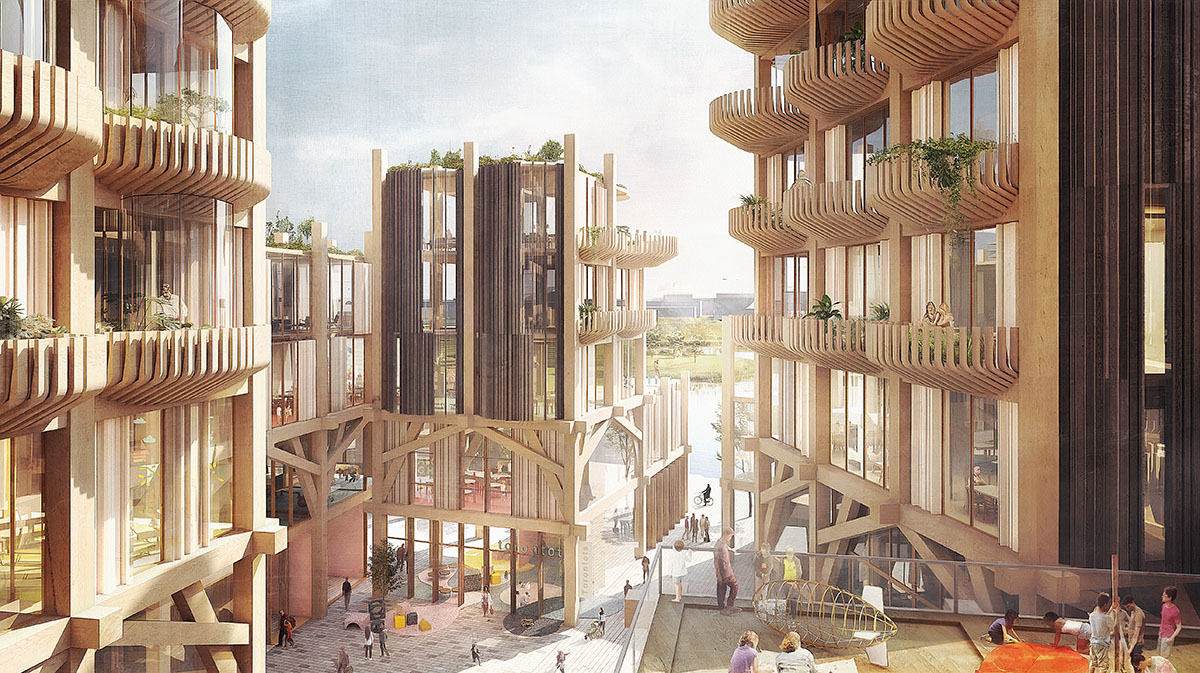
Sidewalk Labs' mass timber city masterplan in which Snøhetta and Heatherwick Studio's designs involved, has been decided to be scaled back after a vote held last week in Toronto. The new masterplan raised privacy concerns after Sidewalk Labs stated that they will use the collected data from the neighbourhood with the third parties.
After a voting process held last week, Waterfront Toronto - the government agency responsible for development of the area - voted unanimously to limit the team’s original 190-acre plan to 12 acres, reported in The New York Times.
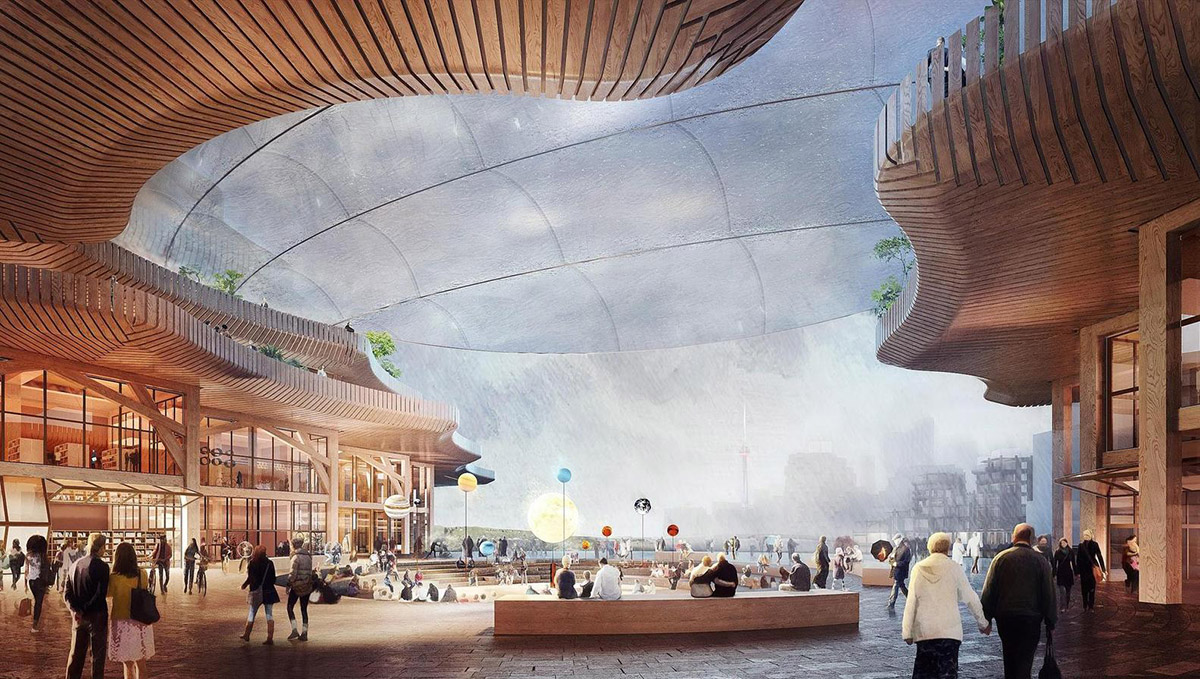
Sidewalk Labs, an urban innovation organization, revealed design in earlier this year to bring a new approach to urban development on Toronto’s Eastern Waterfront. The companies enlisted the Alphabet subsidiary to oversee the development of the masterplan.
The new plans would include residential buildings, made of 100% mass timber, vibrant public spaces on the ground floor connecting the city to the Lake at new Parliament Plaza, a new housing (35+% set as affordable housing), TDSB Primary School, mixed-use program including commercial and retail uses, renovation of Queens Quay East, including LRT extension and the new Google HQ.

On June 17, 2019 Sidewalk Labs revealed its full 1,500 page development proposal for its Quayside neighborhood, called the Master Innovation and Development Plan (MIDP), to Waterfront Toronto. The development proposal includes the new urban renovations, the detailed plans and the partnership details of the masterplan.
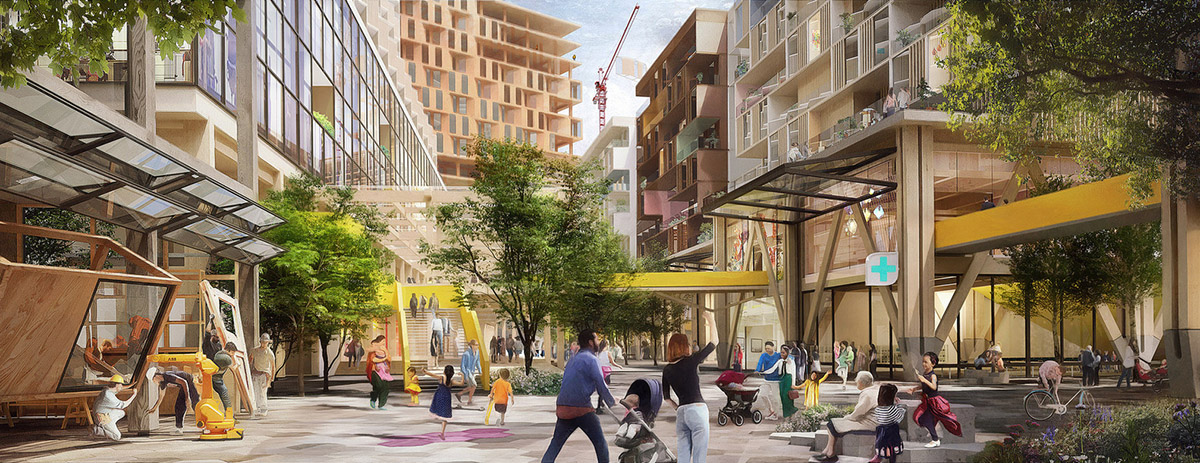
On June 24, 2019, Waterfront Toronto released a document, titled Overview of Realignment of MIDP Threshold Issues, for Sidewalk Labs’ draft Master Innovation and Development Plan (MIDP) to the public together with an Open Letter from Board Chair, Stephen Diamond. The table summarizes what was initially proposed in the MIDP and the realignment agreed to by Sidewalk Labs.
The Sidewalk Labs intended to create a trusted process for responsible data use that builds on existing privacy laws and would apply to all parties (including Sidewalk Labs). They also confirmed that the collected data will be used for the neighbourhood's design and activities, without using them for any advertising facilities or sharing with Alphabet companies.
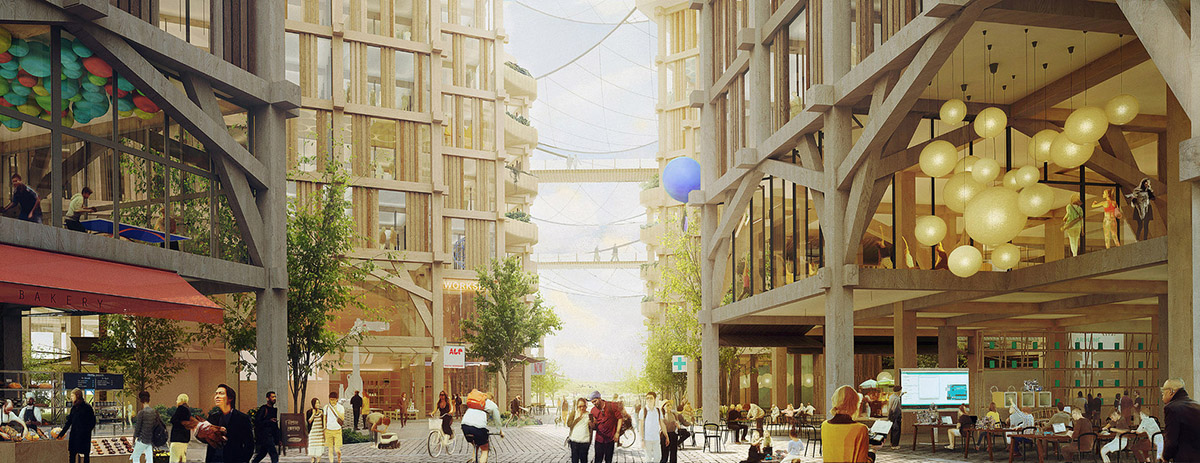
According to the recent report of The New York Times, one group from many local protests and residents characterized the project as a "Google affiliate" trying to turn cities into "corporate surveillance states, modeled after Disney-style developments and sold to police services and corporate partners."
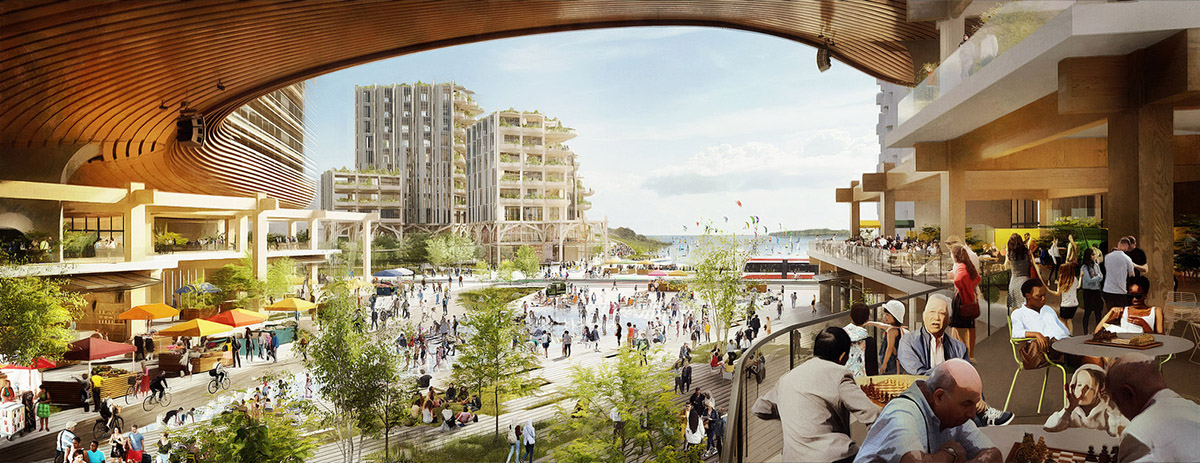
The report stated that "Waterfront Toronto moved Thursday to wrest greater control of any data, requiring that Sidewalk Labs treat information collected in the development as a public asset. The agreement reached with Sidewalk Labs also requires that the company join forces with other property developers."
"The best way out of this mess would be for Waterfront Toronto to end any deal with Sidewalk as soon as possible," Julie Beddoes, a local resident and member of the group BlockSidewalk, said in a statement after the vote.
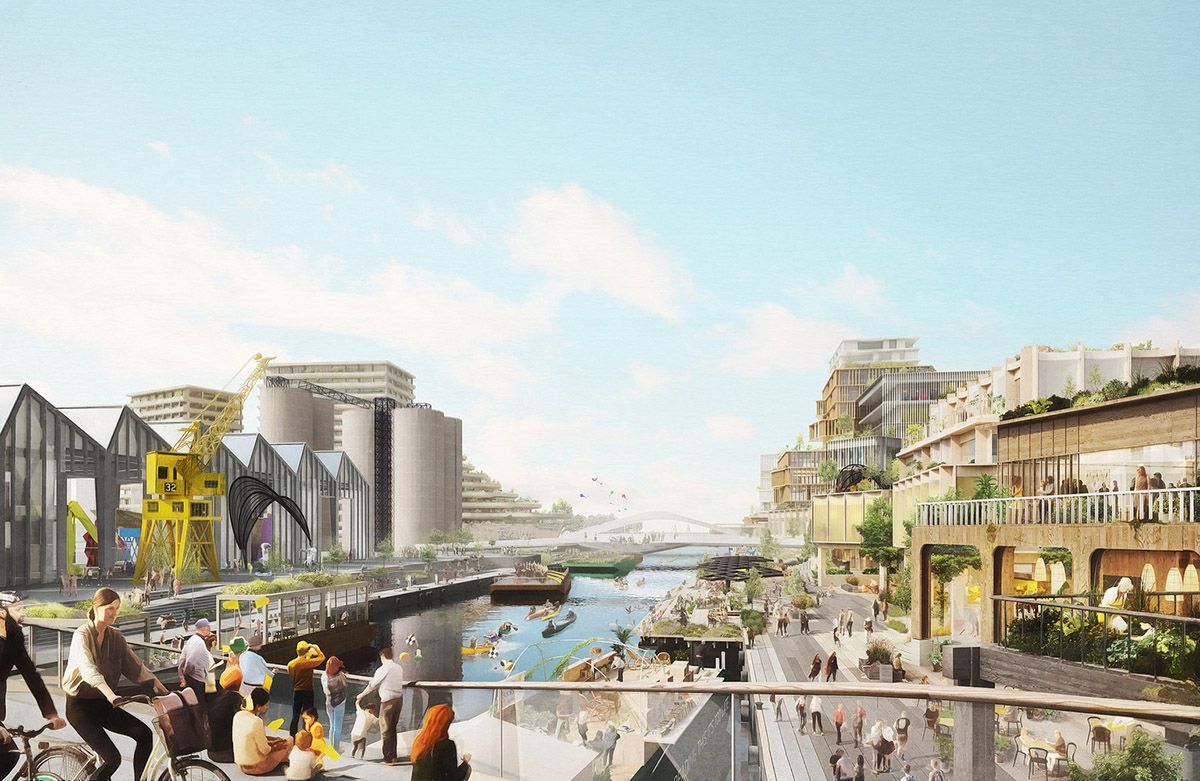
Keerthana Rang, a spokeswoman for Sidewalk Labs, a subsidiary of Google’s parent, Alphabet, said the company remained confident it could pursue its ambitions, albeit on a smaller scale.
The summer proposal showed that the plans would include 12 timber towers with 2,500 residential units total, 1,000 of which would be rented at below-market rates and combine offices, shops and residences.
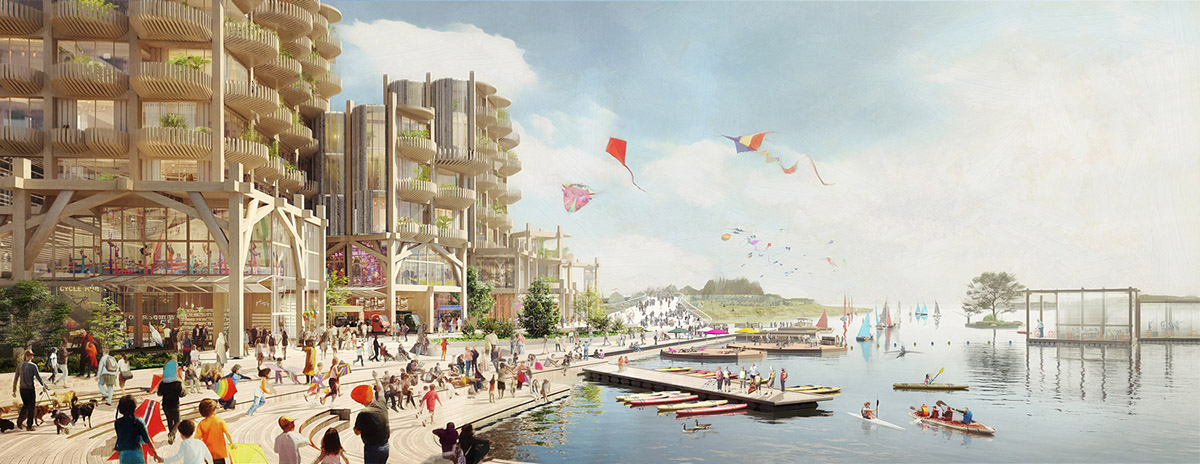
Waterfront Toronto said they will consult further with the public and conduct a formal evaluation of the plan, which will determine whether the project can go forward, according to The New York Times.
All images © Picture Plane
> via Sidewalk Labs & Waterfront Toronto & The New York Times
